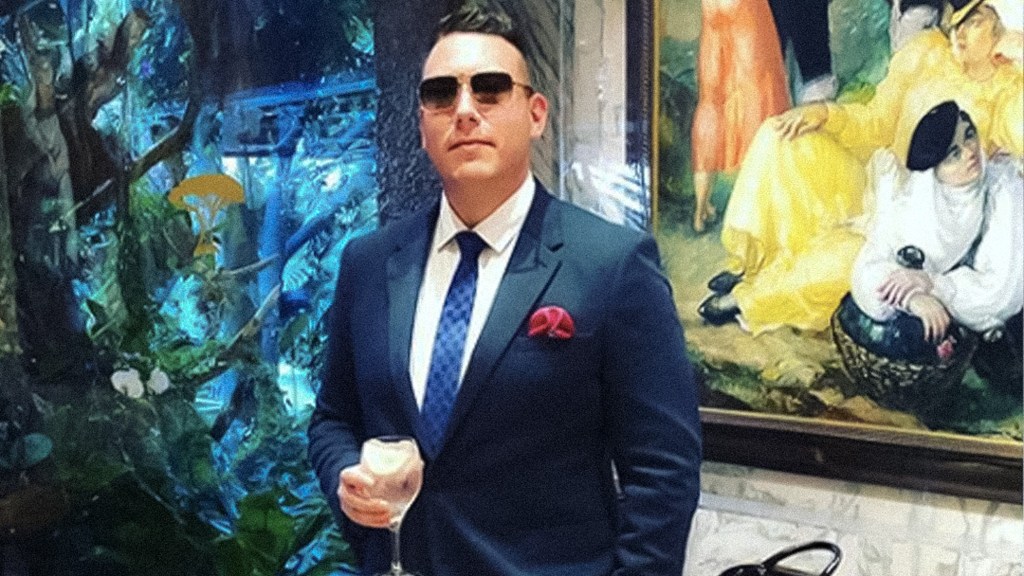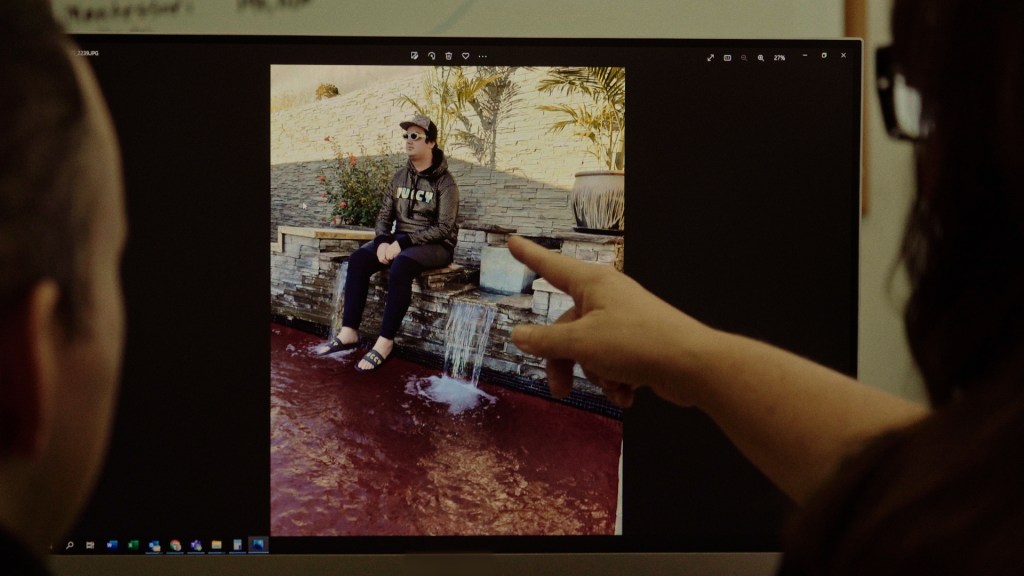
Image via Wikimedia Commons
It probably won’t shock you to learn that Valentine’s Day in America’s prisons tends to be pretty depressing. I remember from own two-plus decades inside sending cards out to my girlfriend (and future wife), my mother, and anyone else I was lucky enough to correspond with. But usually the best I could do in the way of gifts was some kind of homemade ceramic crafted by a fellow inmate.
I once resorted to commissioning a painting of my wife and I based the image on a photo of us hanging out in my prison’s visiting room.
Videos by VICE
These days, companies like JPay help inmates not only send out emails, buy music and receive attachments, but even blast out e-cards just in time for Valentines Day. As of 2012, Jpay was catering to 1.5 million inmates throughout 35 states, and since I’ve been out, I’ve used it to correspond with friends in the Ohio, Michigan and South Carolina state prison systems. I reached out to a few of them for some perspective on how Valentine’s Day is evolving within the confines of America’s prison-industrial complex thanks to private-sector innovation.
“The E-card thing is cool,” a prisoner we’ll call Sha emails me from the Mansfield Correctional Institution in Ohio. “I like it, especially coming from the fed system where we only have emails. Just about every email I send out now I includes an e-card attachment. The Valentine ones been on there all this week. It’s easy to do. [But] I’m still going to send out [regular] cards because cards are still real personal to me and I know people still value cards as well.”
Sha says there’s a huge selection to choose from with services like JPay, and embraces it as a luxury of mass incarceration in the 21st century. But some inmates aren’t so fond of the service, likening it to a scam—albeit one they can’t always resist.
“I don’t got no Valentine—I’m in prison,” my friend Rick says on the phone from Oaks Correctional Facility in Manistee, Michigan. “It’s a cool way of communicating, but [it’s] 20 cents for every e-card—there’s a charge for everything.”
That may not seem like much, but many prisoners only make $15 dollars a month, leaving Rick with a bad taste in his mouth.
“You can scroll through these pictures and it costs 20 cents each,” he tells me. “JPay is one of the biggest rackets going. I use it, but it’s just a photo. Not really a card. I used it to send out a birthday card. It’s something that’s quick and fast and convenient and you feel like you’re semi-attached to the real world by using email.”
(JPay declined to comment on the specifics of Rick’s beefs.)
I got the same feeling when I first started using email around 2010 at FCI Loretto, a low-security federal prison in western Pennsylvania. It was like instant back and forth communication, and I’m sure a lot of dudes will be using JPay to send Valentines Day e-cards to their significant others and loved ones. But most inmates I spoke to still prefer physical cards to the digital iteration.
“There’s nothing personal like a homemade card,” Rick argues. “The majority of the cards we send are homemade, and we use old fashioned snail mail.” I got plenty of cards made when I was in, paying about six to 12 bucks per. These things can get really elaborate, and there’s actually a decent selection, with various card hustlers pitching their wares on the compound.
My personal favorite Valentine’s Day move was always to call my mom and get her to order my wife roses. Showing that you can deliver a physical gift even when you can’t be present is everything for an inmate.
“I sent my ex-wife roses straight to her front door,” an inmate named Willie tells me from FCI Terre Haute, a medium-security federal prison in Indiana. “To be honest, I timed it so her old man would be home when they arrived. He might as well find out now that we’re getting back together when I come home.”
Any sign of interest from the outside world is welcomed by inmates, but the key is often finding that friend on the outside who will lend you a hand. A guy called “Big Fridge” in the Ohio state system, which offers JPay, asked me for help this year with his mom, sister, and two girlfriends.
I took care of it for him. The heart-shaped boxes of chocolate didn’t cost much, but they made my buddy—who’s been down two decades—look like he could still make things happen for his loved ones, and that’s probably the greatest gift of all.
Follow Seth Ferranti on Twitter.



